Book Your Femoroacetabular Hip Impingement Treatment Today
Prices are inclusive of assessment, ultrasound scan and ultrasound guided injection
What is Femoroacetabular Hip Impingement?
Femoral acetabular hip impingement can occur as a result of subtle structural variances within the bony anatomy of the hip. When these variances are present they can cause pain and impingement
Who are we?
Complete Injections is a highly specialised ultrasound guided injection service providing fast access to pain relieving injections. Book a consultation with us today by clicking the below.
Femoral acetabular hip impingement can occur as a result of subtle structural variances within the bony anatomy of the hip. When these variances are present, the acetabulum and the femoral head and neck can come into contact with each other, causing pain and impingement (Hendry et al., 2013).
There are two key structural (bony) changes associated with femoral acetabular hip impingement. These are as follows;
Cam lesions – this refers to an excess of bone located on the head/neck of the femur. As the hip moves this excess of bone can impact with the acetabulum, causing a bony pinch or ‘impingement’.
Pincer lesions – this refers to an excess of bone located on the rim of the acetabulum. Once again, as the hip moves, this bony protuberance catches on the femoral head/neck causing direct injury to the femur. Hip joint pathology can also occur at the opposite side of the joint due to a lever-action caused by the pincer lesion.
It is not uncommon for some patients to experience both Cam and Pincer lesions at the same time (Cheatham et al., 2016).
Femoral acetabular impingement is a common cause of hip pain in both young and middle-aged patients and has been associated with the development of secondary hip osteoarthritis (Park et al., 2012).
Load-bearing joints such as the hip and knee are the most commonly affected by osteoarthritis [cornerstone hip article]. Current research has shown that articular cartilage requires good quality joint movement to maintain its health. Inappropriate movement patterns or sustained suboptimal loading can cause the articular cartilage to become thinned and compromised (Clarke et al., 2003). The process results in the degenerative process known as osteoarthritis.
Fortunately, research has also demonstrated that maintaining good flexibility and strength around the joint will help to slow the disease progression associated with osteoarthritis (Hunter et al, 2009).
Cheatham et al., (2016) states that the development of femoral acetabular impingement is mainly congenital. However, there are a number of risk factors associated with femoral acetabular impingement (FAI). These include;
- Hip joint hypomobility (reduced range of motion)
- Muscular stiffness/tightness in surrounding hip musculature
- Suboptimal gait pattern (differences in the way you walk have been observed in patients with FAI)
- Hip muscle weakness is regularly noted in patients with FAI (46% of FAI patients have been shown to exhibit weakness in the lateral gluteal muscles, used to stabilise the hip joint)
- Changes in the position of the pelvis have also been observed in patients with FAI
- The chance of FAI is increased after hip fracture

Ultrasound Guided Injection
Complete Injections is a highly specialised ultrasound guided injection service created to provide fast access to pain relieving injections for a wide range of musculoskeletal conditions delivered by our team of experts.
Self-referral accepted
We do not need a doctor to refer you
Minimal waits
We can usually see you within 24-48 hours
Excellent self-pay rate
From £280 including assessment, ultrasound guided injection and report
Highly experienced clinicians
We perform hundreds of injections every year
ULTRASOUND GUIDED INJECTION ONE STOP SHOP FEES
- Same Day Consultation (subject to availability).
- Ultrasound scan and musculoskeletal assessment.
- Ultrasound Guided Injection.
- Report of assessment and scan findings and details of injection.
- A comprehensive range of injection procedures for musculoskeletal conditions are offered.
- All injections are performed by highly experienced advanced physiotherapists dual trained as physiotherapist and musculoskeletal sonographer.
- All are qualified as independent prescribers to allow them to screen you for any possible medicines interactions and select the most appropriate medication for your injection.
- All hold full qualifications in diagnostic ultrasound and injection therapy of peripheral musculoskeletal disorders.
Clinical Director
Chris is one of the few physiotherapists in the country to also be a fully trained as a musculoskeletal sonographer and uses diagnostic ultrasound to diagnose muscle, ligament, tendon, joint and nerve problems. He has been using diagnostic ultrasound…
Clinical Director
David is one of the pioneers of physiotherapists performing ultrasound guided injections. With 20 years of clinical experience as a chartered physiotherapist specialising in musculoskeletal care, David is clinical director at Complete Physio Ltd, with…
Injection Therapist
Luke is a highly specialised advanced level physiotherapist with a broad understanding of musculoskeletal health care. He qualified as a Physiotherapist in 2007 and has a wealth of experience working in both the NHS and privately settings.





